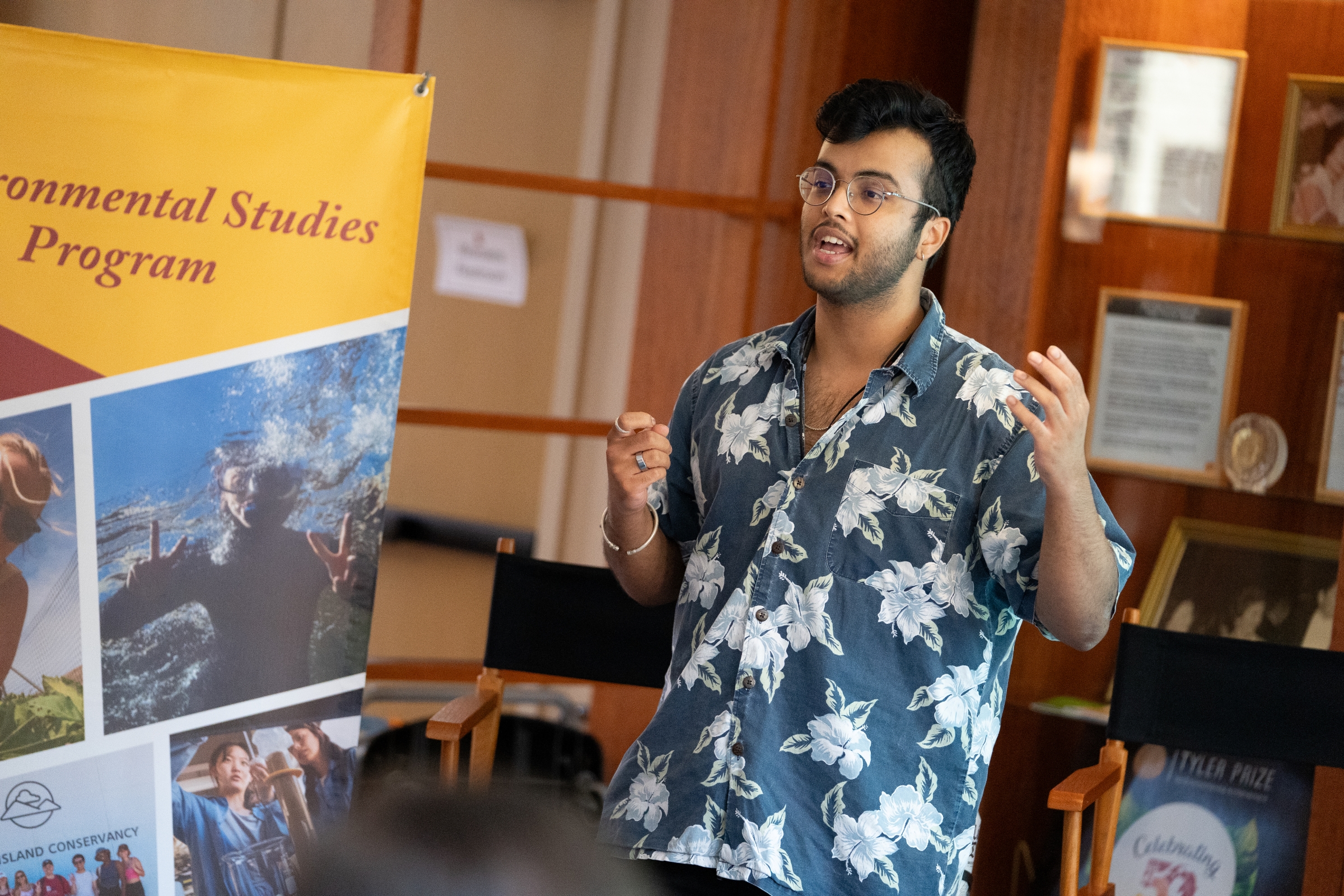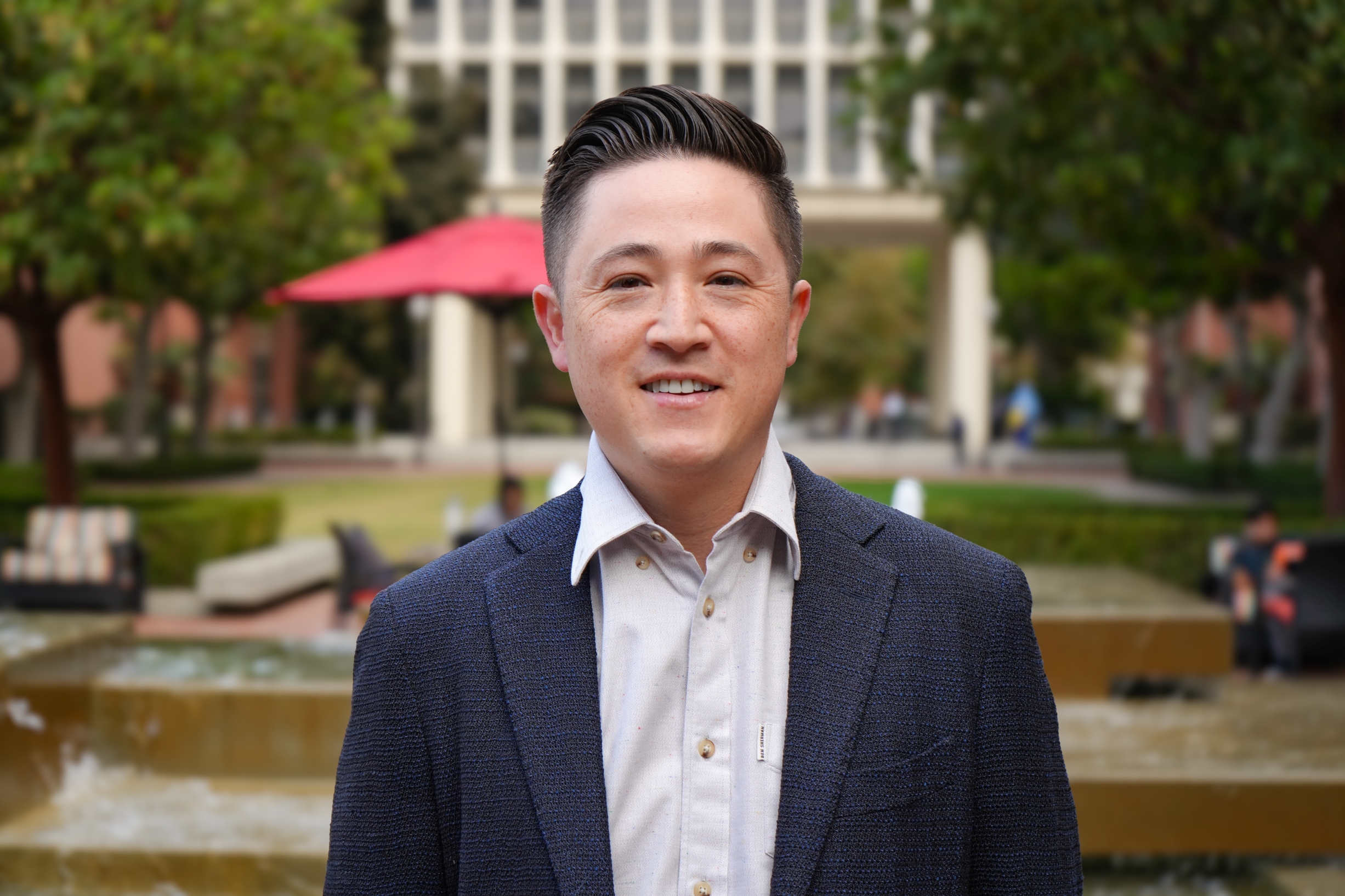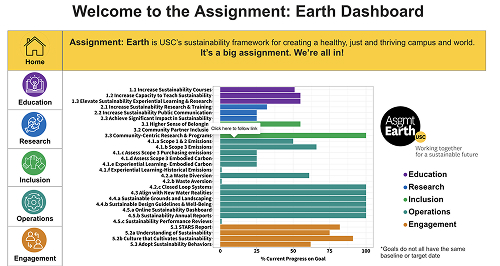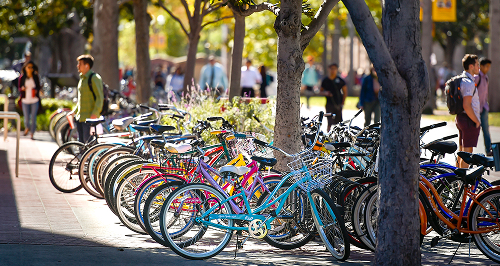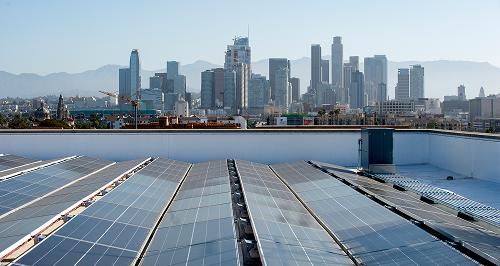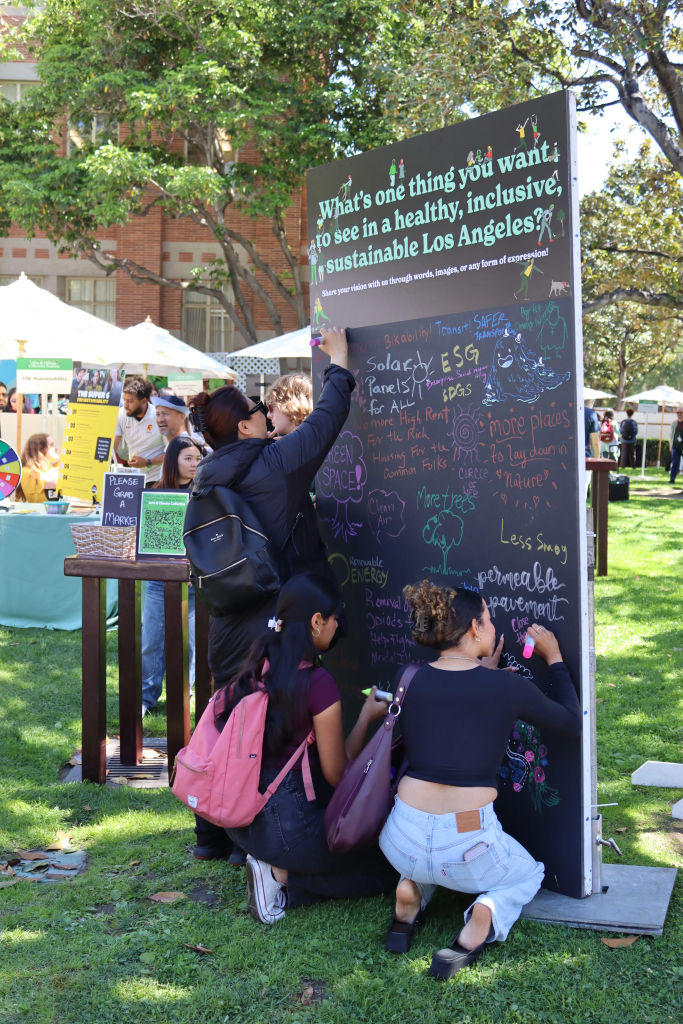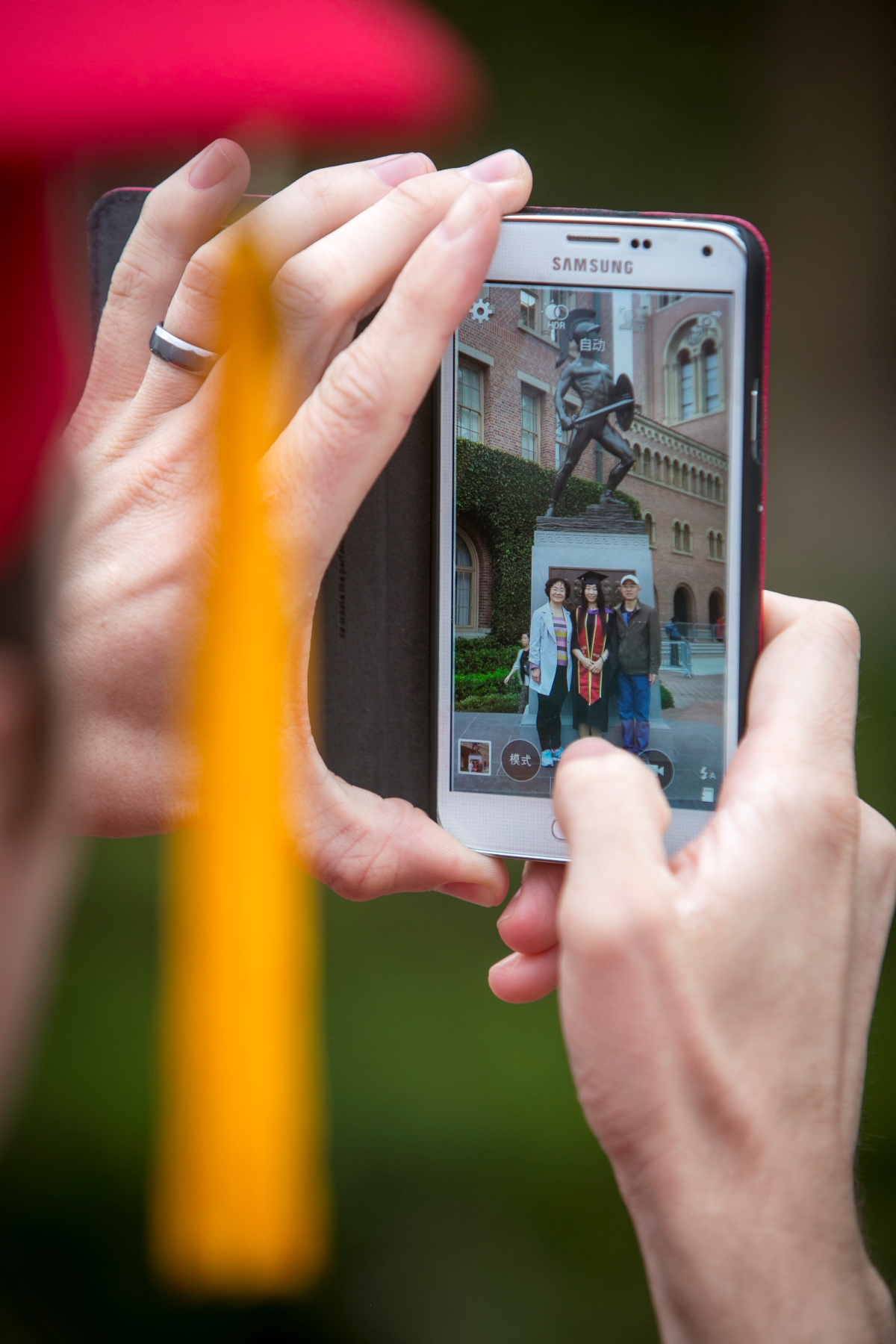
Explore Assignment: Earth, USC’s sustainability framework for creating a healthy, just and thriving campus and world. And visit the home of Assignment: Earth, the USC Sustainability Hub.
Take Action
Whether you’re a student, a member of the faculty or a part of our staff, there are tons of ways to be a Sustainable Trojan on and off campus.
Green Toolkit
Access sustainable resources on campus, find a sustainability course, discover sustainability data and research and more with USC’s Green Toolkit.
Making Progress
Explore our progress on Assignment: Earth, our 2025 USC Sustainability Survey and our FY24 Annual Report.
News, Events & Social Media
Get the latest news, attend sustainability events and join the conversation with USC Sustainability on social media.
Sustainability News Highlights

Imagining a Desert Art Museum: Featuring Ten USC Architecture Student Projects
In a striking new feature on Dezeen School Shows, student work from the University of Southern California School of Architecture was published for its inventive proposals for an art museum set within the rugged landscape near Joshua Tree National Park — a remote yet culturally resonant corner of California’s high desert.

USC Annenberg announces inaugural class of Health and Climate Change Reporting Fellows
The USC Annenberg Center for Climate Journalism and Communication and Center for Health Journalism are pleased to announce the selection of 10 talented journalists who will be participating in the inaugural cohort of the Health and Climate Change Reporting Fellowship.

Traveling Fellowship Spotlight: Jenae Edwards ’27 Explores the Architecture of Sinking Cultures
Thanks to the Avi Gesundheit Traveling Fellowship through the USC School of Architecture’s Traveling Fellowships scholarship programs, Jenae Edwards is exploring the Pacific, not just as a destination, but as a living classroom for climate resilience.

